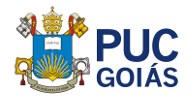Use este identificador para citar ou linkar para este item:
https://repositorio.pucgoias.edu.br/jspui/handle/123456789/4568| Tipo: | Trabalho de Conclusão de Curso |
| Título: | Os efeitos terapêuticos do treinamento de marcha em esteira com uso do suporte parcial de peso em crianças com paralesia cerebral espática: uma revisão de literatura |
| Autor(es): | Alves, Joseane Pontes |
| Primeiro Orientador: | Alves, Dalley César |
| metadata.dc.contributor.referee1: | Sandoval, Renato Alves |
| metadata.dc.contributor.referee2: | Alcântara, Lívia Andreza de Macêdo Bezerra |
| Resumo: | stimada de 2,1 para cada 1000 nascidos vivos. A aquisição da marcha é fundamental na reabilitação de indivíduos com paralisia cerebral espástica. Assim, há uma necessidade de analisar intervenções voltadas para a capacitação funcional desses indivíduos. Objetivos: Observar por meio da literatura científica, quais os efeitos do treinamento de marcha com uso do suporte parcial de peso em crianças com paralisia cerebral espástica. Metodologia: Trata-se de uma revisão de literatura científica, abordando as bases de dados indexadas na BVS (biblioteca virtual em saúde), PubMed, SciELO (ScientificElectronic Library Online), PEDro (Physiotherapy Evidence Data base) e Physical Therapy Journal, com artigos em línguas portuguesa e inglesa. Os critérios de inclusão foram: estudos randomizados e não randomizados, estudos pilotos, possuir título, resumo e texto na íntegra que se enquadre na temática paralisia cerebral espástica e reabilitação com uso de suporte parcial de peso. Foram excluídos artigos que não abordavam a temática principal. Resultados: Para a confecção do trabalho foram utilizados nove artigos, nos quais, se verificou uma melhora significativa na transferência do sentar-se e levantar, ortostatismo, na marcha, com destaque para o comprimento da passada e velocidade. Conclusão: Após análise das evidências científicas, conclui-se que a utilização da esteira com suporte parcial de peso é benéfica no treinamento da marcha de pacientes com paralisia cerebral, apresentando melhora significativa na velocidade da marcha e na funcionalidade. No entanto, a partir da análise dos resultados de estudos experimentais da literatura pesquisada, observaram que os resultados dos treinamentos em solo são mais positivos que o treinamento realizado em esteira com suporte parcial de peso. Conclui-se que estudos de maior duração e com maior número de sessões semanais tendem a obter melhores resultados, principalmente quando se busca uma melhora do equilíbrio estático, dinâmico, e no desenvolvimento das fases da marcha dos indivíduos. |
| Abstract: | Introduction: Cerebral palsy is the most common cause of motor impairment in childhood, with an estimated prevalence of 2.1 per 1000 live births. Gait acquisition is fundamental in the rehabilitation of individuals with spastic diparetic cerebral palsy. Thus, there is a need to analyze interventions aimed at the functional empowerment of these individuals. Objectives: To observe, through the scientific literature, the effects of gait training with the use of partial weight support in children with spastic cerebral palsy. Methodology: This is a review of scientific literature, covering the databases indexed in the VHL (virtual health library), PubMed, SciELO (Scientific Electronic Library Online), PEDro (Physiotherapy Evidence Data base) and Physical Therapy Journal, with articles in Portuguese and English. The inclusion criteria were randomized and non-randomized studies, pilot studies, having a title, abstract and full text that fits the theme of spastic cerebral palsy and rehabilitation with the use of partial weight support. Articles that did not principal address the theme were excluded. Results: Nine articles were used for the preparation of the work, in which there was a significant improvement in the transfer of sitting and standing, ortho-statism, in gait, with emphasis on stride length and speed. Conclusion: After analyzing the scientific evidence, it was concluded that the use of a treadmill with partial weight support is beneficial in gait training for patients with cerebral palsy, showing significant improvement in gait speed and functionality. However, based on the analysis of the results of experimental studies in the researched literature, it was observed that the results of ground training and suspension training are more positive than training performed on a treadmill. It is concluded that studies of longer duration and with a greater number of weekly sessions tend to obtain better results, especially when looking for an improvement in the static and dynamic balance, and in the development of the individuals' gait phases. |
| Palavras-chave: | Paralisia cerebral Diplegia espástica Paralisia cerebral diplégica infantil Marcha Suporte parcial de peso |
| CNPq: | CNPQ::CIENCIAS DA SAUDE |
| Idioma: | por |
| País: | Brasil |
| Editor: | Pontifícia Universidade Católica de Goiás |
| Sigla da Instituição: | PUC Goiás |
| metadata.dc.publisher.department: | Escola de Ciências Sociais e da Saúde |
| Tipo de Acesso: | Acesso Aberto |
| URI: | https://repositorio.pucgoias.edu.br/jspui/handle/123456789/4568 |
| Data do documento: | 14-Jun-2022 |
| Aparece nas coleções: | TCC Fisioterapia |
Arquivos associados a este item:
| Arquivo | Tamanho | Formato | |
|---|---|---|---|
| Artigo TCCJoseane pronto e corrigido.pdf | 183,45 kB | Adobe PDF | Visualizar/Abrir |
Os itens no repositório estão protegidos por copyright, com todos os direitos reservados, salvo quando é indicado o contrário.
Ferramentas do administrador
